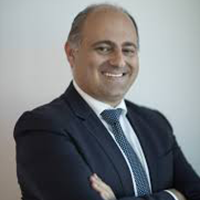
Guest contribution by Fabio Axisa, President, The Malta Institute of Accountants
Following the publication of the evaluation report on Malta adopted by the MONEYVAL Committee, the Malta Institute of Accountants embarked on an education and training programme to elevate the level of professional behaviour in this area. The Institute organised high profile events for our membership base, inviting the Malta Financial Services Authority (MFSA), the Financial Intelligence Analysis Unit (FIAU), the Malta Bankers’ Association (MBA) and specific banks, to discuss the findings of the report. The regulators and bankers gave very clear examples of instances where specific members of our profession did not understand the risks emanating from certain services provided and did not escalate matters with the appropriate authorities when they were meant to. Whilst we believe that this behaviour is attributable to a minimal minority within our profession, we should strive incessantly to raise the bar and enhance standards. The key messages to our members emanating from such events comprise:
- the need to understand the economic rationale underlying the business or transactions of our clients or companies with whom we are employed;
- the need to focus on substance of arrangements or transactions and not simply form;
- the onboarding of clients and engagements requires rigour and critical analysis – it should not be deemed a fait accompli;
- risk management and compliance are an intrinsic part of the day-to-day behaviour of a professional accountant – it should never be construed simply as a burden or cost;
- if something does not make sense, we should stop, think and take the necessary actions.
 The Institute has worked on proposed amendments to the Accountancy Profession Act, to create a comprehensive and fair definition of what constitutes professional accountancy. This will ensure that certain services, which require the skills of a professional accountant, will only be carried out by an adequately qualified and trained professional. The initiative will contribute towards elevating professional standards and addressing the risk of non-suitably qualified persons bringing the profession into disrepute. This will be a very important milestone as it will also help the profession delineate the activities carried out which are considered to be relevant activities for the purposes of AML/CFT. In this area, the Institute is also working to complete the sector specific implementing procedures, which need to be finalised as soon as possible in line with MONEYVAL related deadlines. We are interacting and working very closely with the FIAU and the Accountancy Board, the profession’s regulator, in this respect.
The Institute has worked on proposed amendments to the Accountancy Profession Act, to create a comprehensive and fair definition of what constitutes professional accountancy. This will ensure that certain services, which require the skills of a professional accountant, will only be carried out by an adequately qualified and trained professional. The initiative will contribute towards elevating professional standards and addressing the risk of non-suitably qualified persons bringing the profession into disrepute. This will be a very important milestone as it will also help the profession delineate the activities carried out which are considered to be relevant activities for the purposes of AML/CFT. In this area, the Institute is also working to complete the sector specific implementing procedures, which need to be finalised as soon as possible in line with MONEYVAL related deadlines. We are interacting and working very closely with the FIAU and the Accountancy Board, the profession’s regulator, in this respect.
Professional accountants interact in an intensive manner with the MFSA through a range of services provided. Our experience as a profession is that the MFSA has sought to enhance the regulatory framework for licensable and other related activities, including certain services provided by accountants, such as CSP activities. From our perspective, with respect to both authorisation and supervision of licensed entities, the MFSA has raised the bar in respect of its expectations surrounding the rigour and robustness of AML/CFT programmes and procedures to be adopted by such licensed entities. The number and depth of onsite visits, focusing specifically on such matters, has increased exponentially taking cognizance of the risk-based approach adopted by the MFSA. Objectively, this risk-based approach seems to have directed more efforts towards the riskier segments of licensed entities and the riskier activities within the regulated business landscape. The nature of findings emanating from such onsite visits, the detailed nature of the reports issued, the process deployed to ensure licensed entities remediate reported findings and the supervisory actions taken by the MFSA unequivocally highlight the MFSA's stance with respect to AML/CFT controls. Clearly, this stance is providing licensed entities with an insightful benchmark in respect of expectations in the area of AML/CFT with the objective of providing guidance and clarity whilst simultaneously raising standards.
Lots of hard work on everybody’s part – more to come!
Fabio Axisa is currently the President of the Malta Institute of Accountants. He is a partner within PwC Malta, acting as PwC Malta’s Banking and Capital Markets Leader.
Fabio leads the audits of major credit and financial institutions, including significant institutions. He is also actively involved in and leads regulatory and advisory assignments for credit and financial institutions. He is also the firm’s lead regulatory and technical partner in Malta, particularly with respect to adoption of the requirements of International Financial Reporting Standards.

